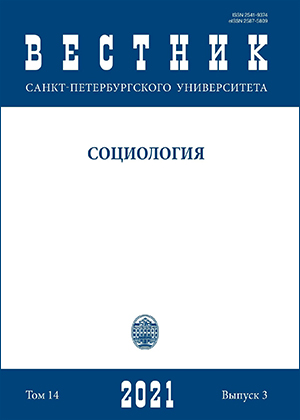Лики Януса в антикоррупционной риторике в Греции
DOI:
https://doi.org/10.21638/spbu12.2021.304Аннотация
На основе официальных отчетов и публикаций в прессе рассматривается, как риторика коррупции используется в греческой политике. Описываются функции, которые она выполняет. В первой части статьи приводится обзор международных исследований и контекстуального фона коррупции. Автор отмечает отсутствие в литературе исторических примеров по борьбе с коррупцией и анализирует факторы, которые исследователи соотносят с коррупцией, такие как степень демократии (де)централизация политической системы, скандализация в СМИ и т. д. Во второй части кратко
представлен подход греческих аналитиков к данной теме. Рассматриваются вопросы, касающиеся старых и новых форм клиентизма, которые вызывают наибольший интерес у греческих ученых. В третьей части описывается проведенный автором дискурс-анализ и его результаты. Показано, что коррупционная риторика политиков работает в первую очередь как стратегия, способная подорвать моральный дух главного политического оппонента (оппонентов), а иногда и как метод обеспечения электорального превосходства. По результатам анализа автор делает вывод о бесполезности попыток
греческих правительств улучшить положение страны в антикоррупционном мире путем принятия законов, создания новых органов и учреждений по борьбе с коррупцией, игнорируя тот факт, что основные усилия должны быть направлены на улучшение имиджа Греции на международном рынке. Позитивное изменение имиджа страны на международной арене произошло в последние несколько лет благодаря главным образом неолиберальной экономической политике под опекой иностранных кредиторов.
Ключевые слова:
политический антагонизм, антикоррупционная риторика, предвыборная борьба, неолиберальная политика
Скачивания
Библиографические ссылки
References
Загрузки
Опубликован
Как цитировать
Выпуск
Раздел
Лицензия
Статьи журнала «Вестник Санкт-Петербургского университета. Социология» находятся в открытом доступе и распространяются в соответствии с условиями Лицензионного Договора с Санкт-Петербургским государственным университетом, который бесплатно предоставляет авторам неограниченное распространение и самостоятельное архивирование.




